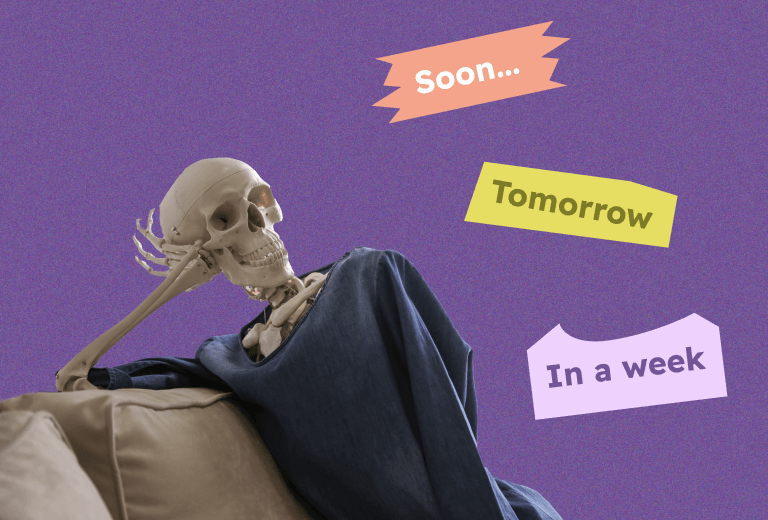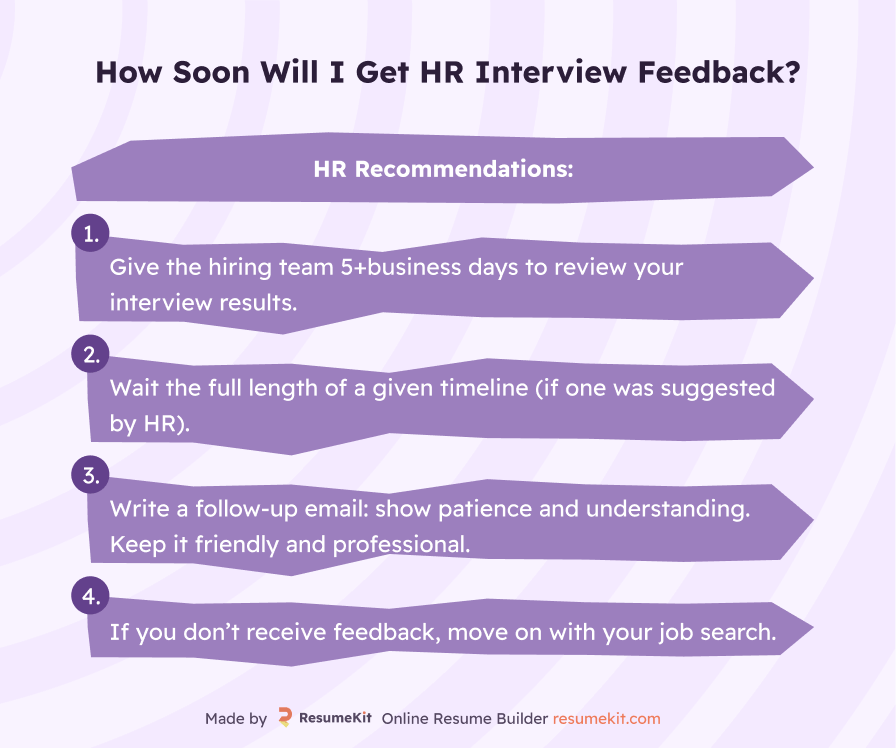So, you answered all of your interview questions and are dying to know if you got the job? Of course, you were told that they’d take some time and get back to you with feedback, but it has already been 2 hours, 2 days, a week, or even longer. Should you call, email or contact the hiring manager via Skype to get the interview feedback? And if you should, when can you safely do it?
Let’s take a look at the wait times that are typical after a job interview, the potential reasons for a delay in getting feedback from the employer’s HR, and what you can do to find out what’s happening without annoying anyone.

Table of Contents
Interview feedback latest trends
Although the employment market is different in different countries around the world, the economy has suffered some degree of decline almost everywhere in recent times. The general trend since the pandemic onset has been that there are more and more people seeking work, which causes potential employers to get picky. Hiring managers are seeing a surge in applications and are now taking their time waiting for the perfect candidate instead of settling for someone who does not match every requirement. This may cause you to have to wait for feedback after the interview a lot longer and leave you wondering about the employer’s decision.

Factors that may have effect
Interviews may come in all shapes and sizes, which may also result in applicants having to wait for feedback for varying amounts of time. When candidates are invited to an office, interviews are usually spread out further apart and the amount of time set for each interview is greater to allow for unforeseen circumstances. With more offices turning to remote work accommodations these days, job interviews are often conducted online via Skype, Zoom or other similar tools.
This allows hiring managers to interview more applicants in a shorter amount of time and therefore helps close vacant positions faster. Because of these differences, the time that will pass between you coming out of the interview room and learning of the outcome can vary a lot.
How long will you have to wait for interview feedback?
If the HR gave you a timeline for the hiring process and an approximate date or time when you should hear back from them, you should wait until at least the specified time before you write or call them. Contacting the HR earlier may be warranted if your situation changes and you want to update them about it. But what should you do if there was no deadline specified during the interview?
Keep in mind that you are most likely not the only applicant on the company’s shortlist. You shouldn’t expect that they would make you an offer right after the interview when there might be 10 or 15 other people who seem to be just as qualified at first sight. HR will need time to interview that many applicants, then review and discuss the results.
But that’s not the only factor that may determine how long you might have to wait for interview feedback. We’ve put together a short list of potential reasons that may affect the wait time.
Potential reasons for delayed response
- The HR needs to interview all applicants to ensure a fair decision. Sometimes this process may take quite a while, because interviews may require the presence of the candidate’s future supervisor or other team members, who are most likely busy with other work. But if this turns out to be the reason in your case, it’s actually a good sign. When an applicant clearly fails the interview, they are usually informed of it pretty quickly.
- Sometimes, the search may be put on hold due to some unforeseen circumstances or an issue with internal processes. Like we mentioned above, if you don’t receive a rejection notice while the hiring is placed on hold, it should be a good sign to you. However, if it has been a while, you can send the HR a message to check on the status.
- Background checks are another common reason for a delayed response, as obtaining and reviewing the information may take some time.
- The HR may be negotiating with the top candidate while keeping a few runners-up in the contest in case those negotiations fail. You might be one of the top contesters and may still have a chance to get the job.
- If the position is new for the company, the interviews may get the hiring team to re-think the requirements, the job duties or other details. They may sometimes even decide to restructure the department and/or change the job title. Changes like these take time, and the HR will usually notify the applicants of them when they finalize the changes.
- Another reason for delay may be the fact that the job offers are taking longer to write up. You see, the job offer must contain sensitive details like compensation, responsibilities, bonuses and similar, and may require input from multiple people within the company. Sometimes the process may end up being quite lengthy, keeping applicants wondering of the interview outcome for longer than expected.
Okay, now that you know what could be delaying the HR’s response after your interview, should you just stay put and keep scrutinizing interview questions and answers trying to think of what you may have done wrong? Well, yes and no.
Here is what HR professionals recommend today’s applicants
- Unless you were given a date when to expect feedback, give the hiring team 5 business days or a little longer to review your interview results and make their decision. Expecting positive feedback the next day after your interview is not very smart, considering all the things that should happen for that.
- If you were advised of a timeline, even if it seemed too long to you (like 2 or 3 weeks), it is best to wait at least that long before you start inquiring about the interview outcome.
- If you’ve waited the recommended amount of time and still haven’t received any news from the hiring team, it may be a good time to write a follow-up email. As much as you may want to, try not to accuse or reprimand the hiring manager for not getting back to you, as that may kill any chance you may have had to still be considered for the job. Instead, show patience and understanding, and make your letter sound friendly and professional.
- Once the letter is sent, give the HR some time to reply to it. Do not expect to get a response within hours.
- If even after your follow-up message there is still no interview feedback from the company’s HR, move on with your job search, and don’t feel too bad about it. This is no reason to blame yourself for the failure or to think of this as a failure at all. You may have done everything right during the interview, and you may have even been considered among the top candidates for the job, but some other applicant could have had just a bit more experience or better fitting skills. After all, the company only needs one person to fill the position. Sometimes they have to reject applicants who are highly qualified.
While you are waiting for feedback after your job interview, it won’t hurt to prepare well for more interviews and improve your chances of nailing it next time. If you haven’t done so yet, go through our articles on the most common job interview questions and the questions to ask in an interview. While you are at it, read about the best websites to look for a job on and expand your job search options.